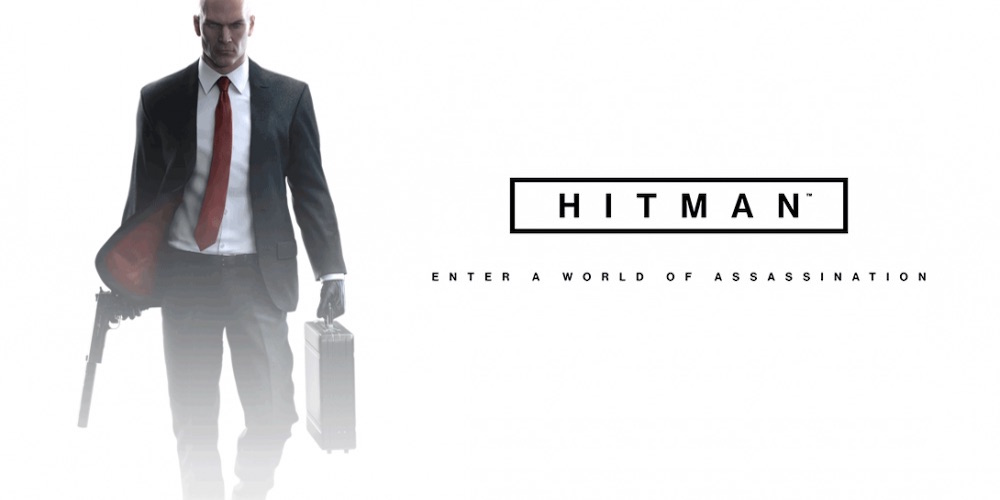
I think that the greatest trick a game can pull on you is to convince you that you’re the one in control. It’s a devilish little detail that a lot of games try to swindle when it’s obvious that any offer of agency is very, very particular. HITMAN is a prime example of this, giving the player great freedom in very select areas of the devs’ choosing. Don’t get me wrong; you’ll want to go back and try different methods, but honestly, there’s just not enough freedom here to praise it as the comeback we wanted. It also doesn’t help that it only lasts two hours.
Before I go any further, I just want to make it clear that this isn’t a review of Hitman per se. Sure, I’m going to be very critical of it, but it’s only got three maps in it so far, and making a final assessment based solely on these first couple hours would be unfair. The briefness is, however, a bit of an issue, since releasing the game this way makes absolutely zero sense. The release schedule for this game has been in flux since the start of development, but only giving it to me piecemeal is a less than enticing value proposition.
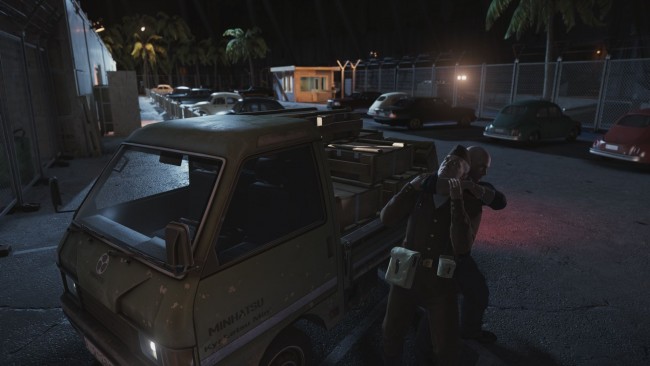
Right now, I’m far from keen to wait a month for each episode. Sure, I can go back and replay these missions again and again (more on that later), but what’s irking me is how it’s detrimental to the storytelling. Without giving too much away, the story ends on a cliffhanger on par with an office lunch break. Things have barely established themselves beyond, “You’re a hitman, 47,” and all I want for things to keep developing so that I have something to latch onto. Now I have to wait a month to get anywhere, but at least I have a game with huge re-playability value to mess around within.
One thing that this instalment does very well is that it makes you want to go back and see how else to dispose of your target. The game offers rewards for executing certain ‘feats’, like using piano wire as a weapon or disguising yourself as a particular person. Pulling off these feats gains you mastery points in that location, which unlocks new methods of entry as well as smuggled weapons and items. The feats are an excellent way to encourage the player to tackle the situation differently, but the ‘opportunities’ mechanic defeats it.
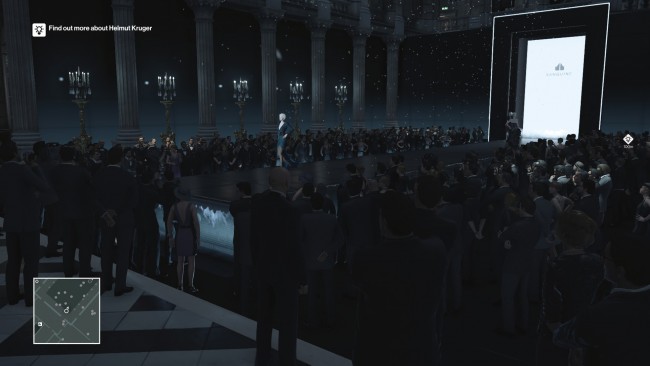
As you’re waltzing around the level, you’ll occasionally discover specified pathways in the level called ‘opportunities’. By tracking them, you can follow up on a conversation you overheard and take advantage of, say, the target’s desire to get a certain cocktail. The problem is not that these opportunities exist but how they’re implemented. By following up on opportunities, the game stops being about playing your way and turns into following the objectives. It’s nice to tell the player that they can do it, but outlining what you need to do at every turn feels self-defeating regarding design, especially when you consider the scope of these levels.
One of my favourite things about HITMAN so far has been how full the levels are. They’re not giant, but each has their little areas and micro-regions that offer circumstances you can exploit. Do I disguise myself as crew to gain access upstairs and accidentally drop one of the PA speakers on the target? Do I head out back to disguise myself as a model to privately meet with one of the victims and poison her drink? Do I say eff it and shoot them during a secret auction? There are so many ways to go about murdering your targets, but without using waypoints, you’ll probably be stumped when it comes to the cool stuff.
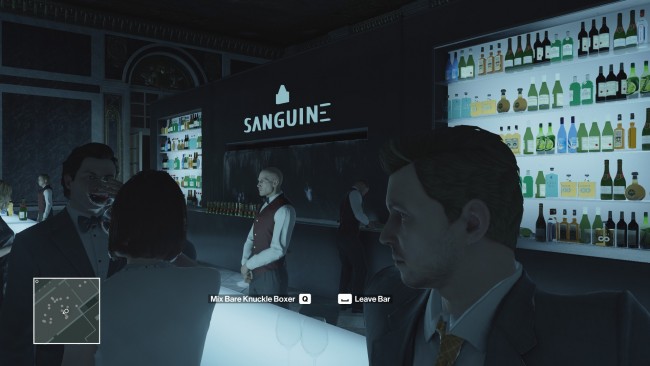
Without a doubt, the opportunities are the best ways to go about murdering your targets, but if you turn waypoints off, they become a cryptic mess. Let’s take poisoning the target’s drink from the Paris mission as an example. To pull it off, you need to go downstairs, disguise yourself as one of the event staff, find the recipe for a bare-knuckle boxer, grab some poison, and then serve the target the drink. All of that is pretty logical and easy enough, right up until you need to find the recipe. This step adds nothing to the game, and considering that 47’s a pretty worldly guy, it’d probably be cooler if he could just make the drink. Without hints, you have no idea where you’d find the recipe, and it feels like a tacked on, superfluous step that’s there to the process for the sake of it. Still, the game is enjoyable enough, assuming you’re online.
The biggest gripe I have with the game so far is how Squenix implemented their always-on system. For some reason, you can’t use game saves from when you’re online when you’re offline and vice versa. Why? No frakkin’ clue, but it might have something to do with experiencing the “full richness” of the game. Now, this is especially insulting when you consider that if you get forced offline (thanks, Australian internet), you’re taken back to the main menu. I don’t understand it, and honestly, I don’t want to rationalise it, because it straight up sucks. Still, the game is enjoyable enough right now, it just has some serious kinks.
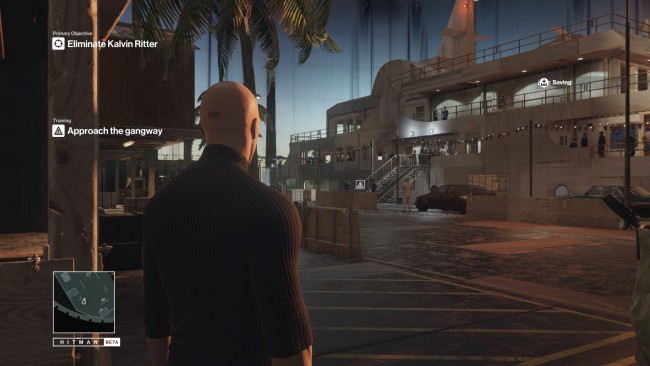
Overall, I’m pretty okay with how HITMAN plays; it’s just that some of the features undermine it too much for my tastes. The opportunities are cool, but they outline how to win in the best way with a step-by-step waypoint system. The levels are a great size and have plenty going on in them, but they can be a cryptic mess and only afford player freedom in particular places. It still lacks the organic brilliance of the old Hitman games, and don’t even get me started with the episodic releases and always-on crap. Satisfying, sure, but I’ll just have to wait and see if the rest of content sells me.
EDITOR NOTE: In an effort to be fair, we don’t include a score for episodic games until they’ve been released in full.











